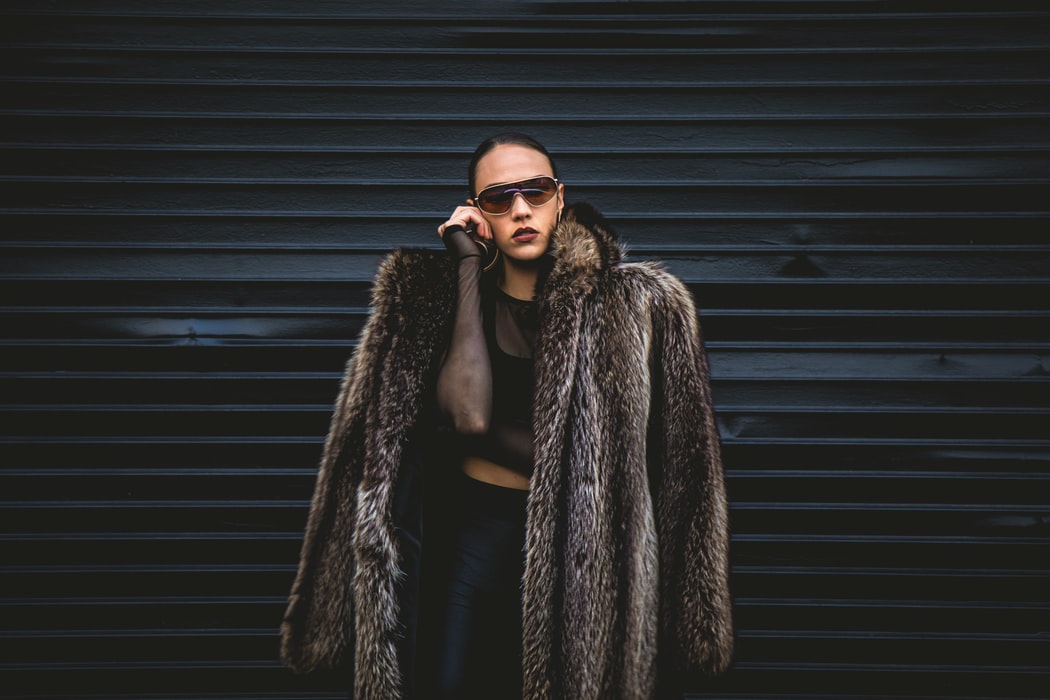With over 50% of UK adults owning a pet, there is no doubt we are a nation of animal lovers. Why is it, then, that a certain number of us willingly wear clothing made from animal fur and exotic leather? Fur has a long history in fashion, from its function in the earliest hunter-gatherer communities to the status it has gathered over the last 100 years.
However, the 20th Century conservation laws protecting animals triggered a change in peoples’ perceptions of fur garments. The ‘Dumb Animals’ campaign launched by Lynx, showcased blood-covered coats referencing the animals sacrificed for fashion and with that, the modern anti-fur movement was born.
The fashion industry at odds
The real fur debate has split high fashion into two camps, with big names on both sides. Heritage brands like Hermès and Louis Vuitton present fur on the runway each season, while Gen-Z favourite Gucci went fur-free in 2017. Individual consumers also have varying views about the ethics of wearing fur, and because opposing groups exist in society, fur consumption is classed as a controversy. People who are pro-fur argue that wearing it is a personal choice, while those against fur feel the use of animal skins for luxury is unnecessary and immoral. So, how can psychology help to explain these differences in opinion?
Psychology’s role in the faux fur movement
Studies show that ‘fashion leaders’ are more open to using exotic leather for clothing than ‘fashion followers’. Fashion leaders tend to prioritise individuality over political correctness, so admit to liking leather apparel despite how they might be perceived. On the other hand, teenagers who worry about how their peers see them have negative feelings about fur consumption, compared to those who are more independent. So, it seems those who subscribe to social conventions and uphold shared morals are more likely to oppose wearing fur and exotic leather.
The messages we interact with can also impact our beliefs on this issue. Psychologists asked fashion consumers to either read positive information describing fur as fashionable, or negative information emphasising furs association with animal-rights issues. Those who read the pro-fur message displayed more positive beliefs about fur clothing, while those who read the anti-fur message reported more negative beliefs. These attitudes had a direct effect on how likely individuals were to want to buy real fur in the future.

It may seem obvious that our beliefs are shaped by what we read and watch: consuming animal welfare advertising may naturally make you inclined to oppose the use of real fur or leather. However, it is interesting that fashion itself can potentially improve how people perceive animal fur. We already know that those at the forefront of fashion generally hold positive beliefs about exotic skins.
So, high fashion involvement consumers possibly reinforce their beliefs by regularly engaging with fashion media promoting fur, leading them to consume it. Yet as modern fashion consumers become progressively more conscious of ethics, it could be that we see a shift towards anti-fur beliefs and a decrease in demand from those with high buying power.
But what are the implications of all this?
The Fashion industry
The main takeaway is the power brands have to influence their consumers with the messages they spread. Pro and anti-fur brands alike can harness this to align their customers’ beliefs with their own to increase the desire for real or faux fur
Animal-welfare organisations
Emphasising the social implications of consuming fur and exotic leather may make shoppers more conscious of how their purchases are perceived, and so more likely to go faux.
Consumers
It is important to be aware of the information we read. Engaging with both sides of the debate means we can recognise our own feelings on this issue – without influence from the industry or our peers – and make purchases that reflect our true values.



